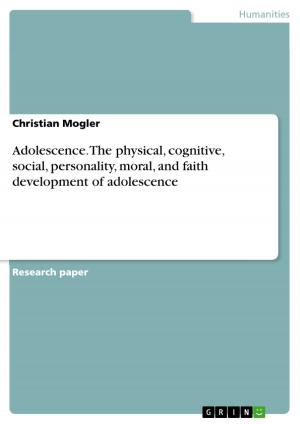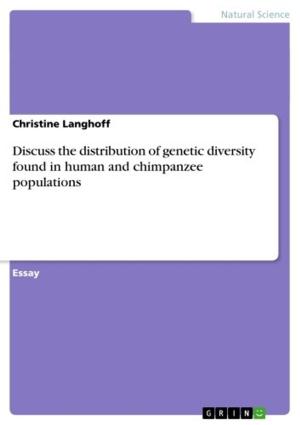Discuss how the descent narrative can function as a form of political and/or social dissent!
Nonfiction, Entertainment, Drama, Anthologies| Author: | Christina Dersch | ISBN: | 9783640273904 |
| Publisher: | GRIN Publishing | Publication: | February 24, 2009 |
| Imprint: | GRIN Publishing | Language: | English |
| Author: | Christina Dersch |
| ISBN: | 9783640273904 |
| Publisher: | GRIN Publishing |
| Publication: | February 24, 2009 |
| Imprint: | GRIN Publishing |
| Language: | English |
Essay from the year 2007 in the subject English Language and Literature Studies - Other, grade: 2,5, University of Sheffield, course: Literature of Descent (Seminar), 18 entries in the bibliography, language: English, abstract: During the past century, our ideas and definitions of hell have changed significantly through the experience of two world wars, the far reaching consequences of decolonization, the Holocaust, the split of mentalities into the dichotomy of 'East' and 'West' as well as most recent threats like diseases, changing moral values and terrorism. These developments make us think about hell in different terms and slowly superimpose classical schemes transmitted via Greek and Roman myths. It is most notably the motif of descent that has altered as death is no more considered the core of the narrative but instead has become an allegory. As Pike points out, `Myth and history are the motor of the descent, but it is driven by the very nature of its narrative structure: to be found in the underworld, a person must be dead.´
Essay from the year 2007 in the subject English Language and Literature Studies - Other, grade: 2,5, University of Sheffield, course: Literature of Descent (Seminar), 18 entries in the bibliography, language: English, abstract: During the past century, our ideas and definitions of hell have changed significantly through the experience of two world wars, the far reaching consequences of decolonization, the Holocaust, the split of mentalities into the dichotomy of 'East' and 'West' as well as most recent threats like diseases, changing moral values and terrorism. These developments make us think about hell in different terms and slowly superimpose classical schemes transmitted via Greek and Roman myths. It is most notably the motif of descent that has altered as death is no more considered the core of the narrative but instead has become an allegory. As Pike points out, `Myth and history are the motor of the descent, but it is driven by the very nature of its narrative structure: to be found in the underworld, a person must be dead.´















